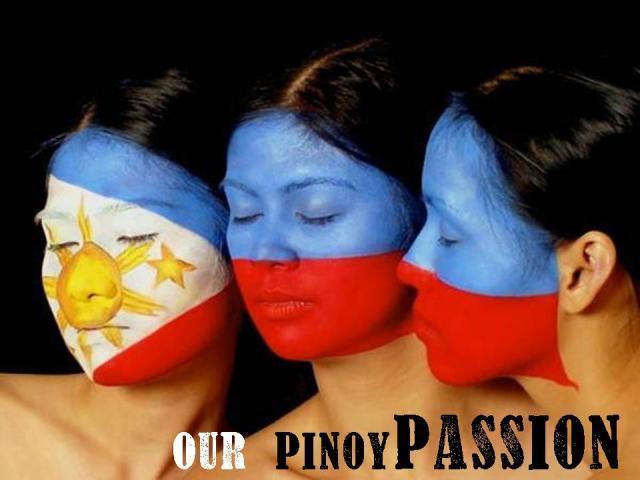
Saturday, November 8, 2008
Business Opportunities

Labour Force
Philippines has a highly trainable labour force as free education are provided from 6 years of primary education to 4 years of secondary education. This allows Filipinos to be equipped with all the necessary basic knowledge and skills and aids them in securing a job in the future. In addition, Filipinos have a strong English language proficiency and they have one of the highest literacy rate in South-east Asia (96.4% - 2007). Moreover, the minimum wage level ranges from PHP 350 - 362 which is relative low makes Philippines a country with inexpensive labour resources.

Booming Call Center & Outsourcing Hub
Philippines also has a booming local call center industry and the country is also a growing outsourcing hub for companies from North America, Europe and Asia due to the availabilty of cheaper alternative work solutions and processes. Companies from USA, Canada, Western Europe and even neighbouring Asian countries are utilizing Philippines' low cost potential.

Friday, November 7, 2008
Business Culture
 The working culture in Philippines is highly hierarchical and patriarchal due to it being highly influenced by Asian values. It can be reflected in the seating arrangement, where the boss or in charge always takes the seat at the top of the table and assumes a paternalistic role within the company. Within the company, there is also many different levels of subordinates and business protocols to be negotiated.
The working culture in Philippines is highly hierarchical and patriarchal due to it being highly influenced by Asian values. It can be reflected in the seating arrangement, where the boss or in charge always takes the seat at the top of the table and assumes a paternalistic role within the company. Within the company, there is also many different levels of subordinates and business protocols to be negotiated. Philippines is also rated low on Long Term Orientation. Values associated with Long Term Orientation are thrift and perseverance; values associated with Short Term Orientation are respect for tradition, fulfilling social obligations, and protecting one's 'face'. This is in line with the Philippine culture of ‘Hiya’.
Philippines is also rated low on Long Term Orientation. Values associated with Long Term Orientation are thrift and perseverance; values associated with Short Term Orientation are respect for tradition, fulfilling social obligations, and protecting one's 'face'. This is in line with the Philippine culture of ‘Hiya’.
The Essential Business Etiquette
 Here is a list of don'ts for essential business etiquette
Here is a list of don'ts for essential business etiquette of the family unit and the affect it often has on business. Nepotism exists in some Philippine business organisations and certain preferences are often made as a result of this.
of the family unit and the affect it often has on business. Nepotism exists in some Philippine business organisations and certain preferences are often made as a result of this.  gues are talking, since this is usually considered offensive and shows a lack of respect
gues are talking, since this is usually considered offensive and shows a lack of respectThe Essential Business Etiquette

DO avoid direct and continuous eye-contact during business conversations, since staring is generally considered to be rude and confrontational.
DO engage in light conversation with your Filipino business colleagues either before
and/or after the meeting, since establishing a cordial personal relationship is very important in Philippine business culture. 
DO address your client/associate with their title and family name first
DO dress in an appropriate manner when doing business with your Filipino
counterparts. Both men and women should dress conservatively and with a certain degree of formality. A vital part of gaining respect and being successful depends on you dressing well and taking pride in your appearance.
DO hand over your name card with both hands. To do otherwise shows of a lack of respect.
Business Practices
 Doing business in any country requires one to understand the culture and business environment. In the Philippines, there are some business practices anyone interested in doing a business there must know:
Doing business in any country requires one to understand the culture and business environment. In the Philippines, there are some business practices anyone interested in doing a business there must know:1) Highly face saving culture: Hiya is shame and is a motivating factor behind behaviour. Filipinos believe they must live up to the accepted standards of behaviour and if they fail to do so they bring shame not only upon themselves, but also upon their family. Always accept any offer of food or drink. If you turn down offers of hospitality, your colleagues lose face. It is also very important to think before you speak.
2) Businss is a highly personalized affair: Like in many Asian countries, Filipinos thrive on interpersonal relationships, so it is advisable to be introduced by a third party. It is crucial to network and build up a network of business associates you can call upon for assistance in the future. Business relationships are personal relationships, which mean you may be asked to do favours for colleagues, and they will fully expect you to ask them for favours in return. To a Filipino, a successful business relationship is based on human interaction, personal contact and establishing trust.
